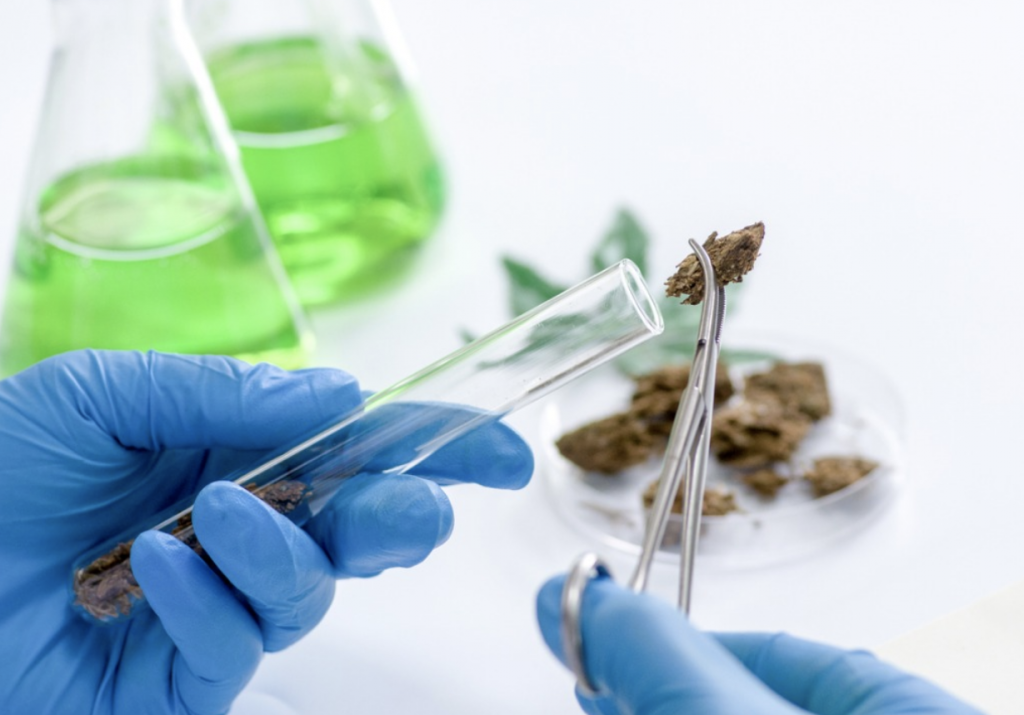Investors that are somewhat familiar with the legal cannabis arena know at least one thing: many of the publicly traded companies in this space are not yet profitable and it may take a few years before these firms are consistently operating in the green, no pun intended.
However, there are areas of the marijuana supply chain that have “cash cow” qualities that many advisors and investors are not yet familiar with. State regulators are increasingly active in overseeing legitimate cannabis in their regions, making cannabis testing labs integral parts of the end products flowing to the medicinal and recreational markets .
Here's one example of the potential potency of investments in the cannabis labs and testing universe: Ionization Labs, a maker of test kits that help law enforcement agencies in Texas test hemp and marijuana to see if its CBD or contains THC (the kind of marijuana that produces a high and is still illegal in Texas) recently raised $5 million in Series A funding at a pre-funding valuation of $20 million.
Other recent developments underscore the point that testing labs are not only a relevant part of the cannabis investing lexicon, but a potentially profitable one, too.
In April, “Washington regulators certified the first laboratory in the state to test for heavy metals in cannabis, meaning that, effective April 18, MJ retailers cannot sell products that haven’t passed the health department-mandated testing,” reports Marijuana Business Daily .
Washington is one of the largest, most vibrant legal marijuana markets in the U.S.
Accessing The Opportunity
The need for cannabis testing labs is real. Growers use different ingredients and procedures to produce weed, putting an added burden on states to ensure that the products coming to market are safe for consumers. That implies built-in demand for cannabis testing facilities and the companies that manage these enterprises need access to capital, opening the door for investors to get a piece of the action.
For advisors and investors with some moral qualms about the cannabis investment thesis, testing labs make sense because these companies are not taking ownership of the product. Plus, they get paid whether the weed in question passes the tests or not.
“The nature of their business means that cannabis labs may carry lower operating costs, less complex regulation, and in total, less risk and a stronger fundamental profile for investors,” according to DebtCraft . “Plus, the fact that cannabis labs never assume actual ownership of the physical product means their interests are purely medical and/or scientific, and are not built or dependent upon the sale of cannabis.”
For investors, sensible ways for accessing testing labs include through angel investing groups or via investment teams with dedicated cannabis expertise. Other options include commercial real estate investments in cities that permit testing labs to operate or engaging in private lending to lab operators because they face the same banking challenges as growers and retailers.
Impressive Growth Trajectory
Given the expected growth of the legal recreational cannabis business in the U.S., states are woefully under-supplied when it comes to testing facilities. Even California's Bureau of Cannabis Control has acknowledged as much .
“For the U.S., recreational and medicinal cannabis has penetrated just 8% and 21% of their estimated markets, leading to 25% CAGR and 15% CAGR through 2030, respectively,” according to Morningstar .
Bottom line: demand for cannabis is outpacing the ability of labs to approve or reject products, meaning the market actually needs more testing sites and that means big opportunity for investors.

